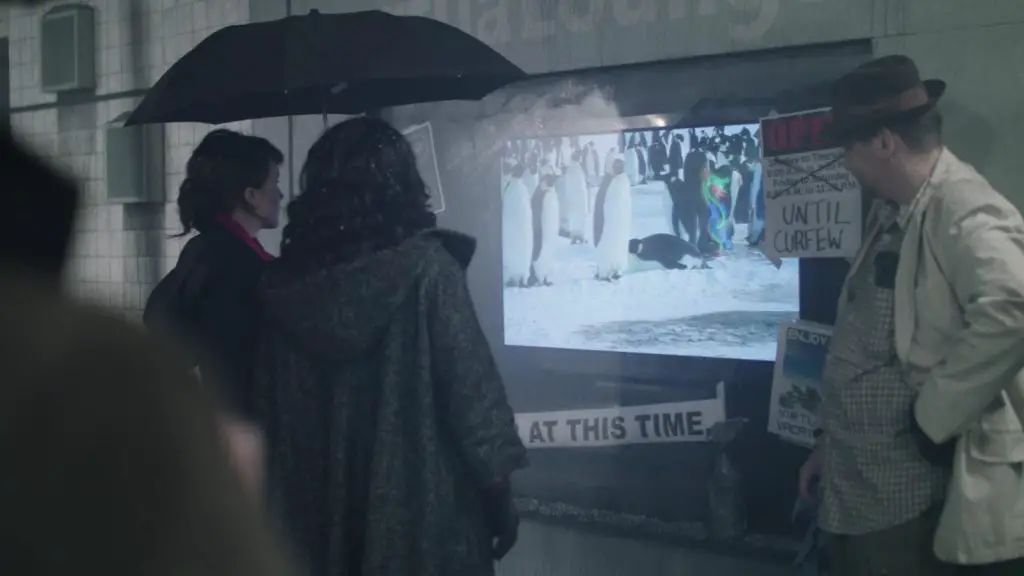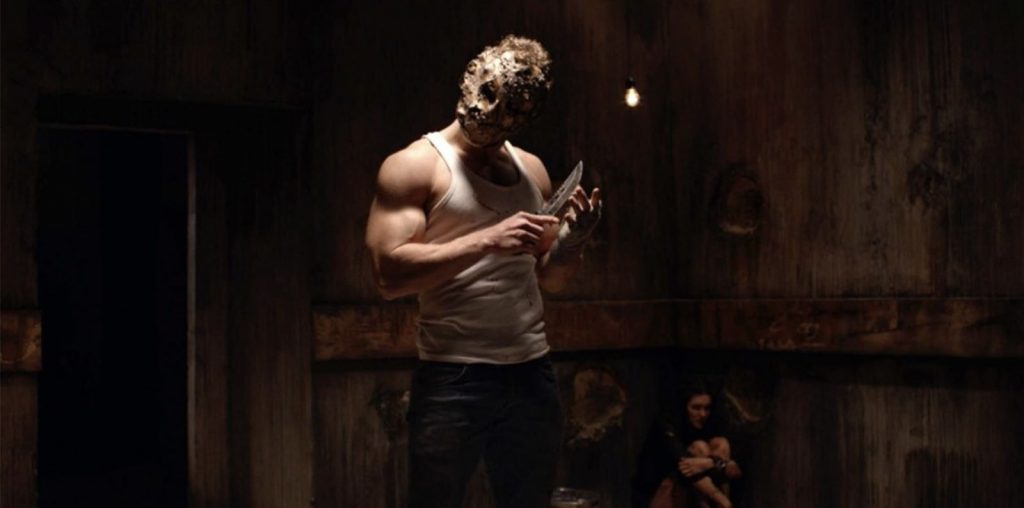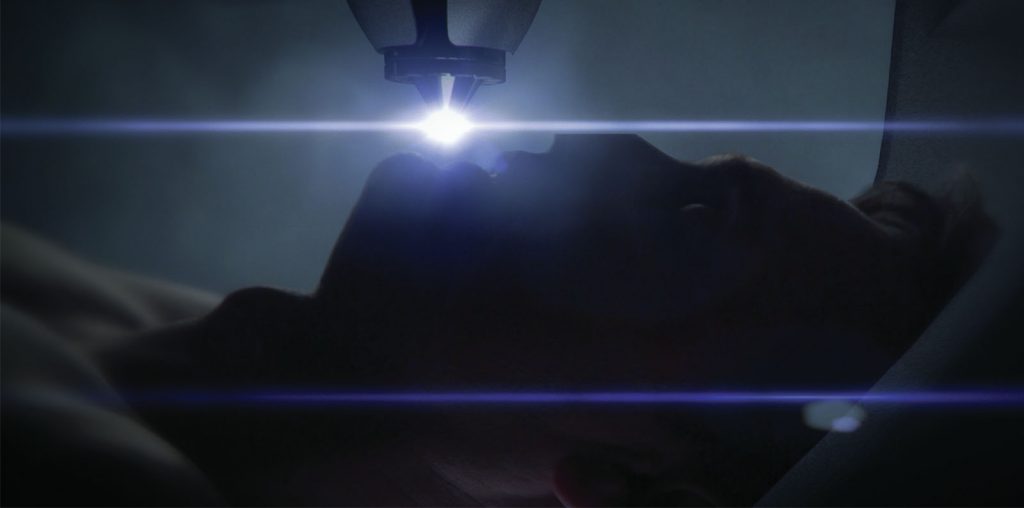
If Black Mirror had an episode set in the world of The Sopranos, it would look a lot like Noah Hutton’s Lapsis. In this film, two brothers live in a dark future on the low end of society in Queens, New York.
Delivery man Ray Tincelli (Dean Imperial) works to make enough money to pay for treatments for his sickly brother, Jamie (Babe Howard). Jamie is suffering from an illness of general malaise called “Omnia.” The implication is that Jamie may not really be sick, but Ray never questions him. Whether he is or not, the medical industrial complex is designed less to heal him than to extract increasingly higher fees from him. The treatment center up-sells Ray constantly, using his guilt for not being able to afford the best treatments as leverage. The real-world analog is, of course, the diagnosis and treatment of chronic fatigue-related disorders. So far, nothing about this is fiction.
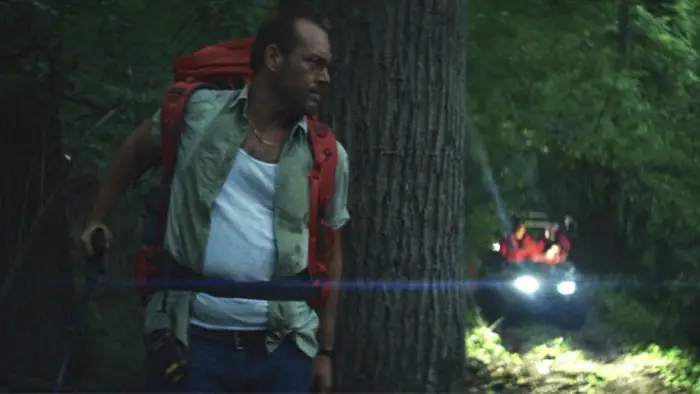
“…considered highly suspicious due to his upper-level medallion, while clearly being a novice to the job.”
Ray’s frustration with the world is palpable. Imperial delivers the escalating tension brilliantly. His behavioral leash is always his brother, though, and he submits to many layers of humiliating, absurd bureaucracy for Jamie. While Ray comports himself with the questionable ethics of a garden variety low-level gangster, his motivations are more altruistic.
The situation for Ray and Jamie seems bleak when he’s offered a coveted new gig economy job as a cable puller connecting wire runs between quantum cube terminals. His mysterious “best not to ask” entré into the cabling gig is a medallion provided to him by a fixer friend, who only wants a “cut” of his earnings. The concept of a medallion as an expensive work permit parallels those required for Taxi drivers.
Ray disdains modern technologies. He’s a Luddite surrounded by high tech, but the job seems like the answer to his prayers, so he jumps at the chance. In this world, quantum computing is orders of magnitude faster than anything like our internet, but the infrastructure is incomplete. People are cheaper than robots to pull the cable through the forest, and cablers are assigned routes in an app that times each one like a race, metering out rest times, food stops, etc. It quickly becomes apparent that Ray’s medallion belongs to someone else, a cabler with experience and company credit, who’s absence is mysterious, and he’s hushed whenever he asks questions.
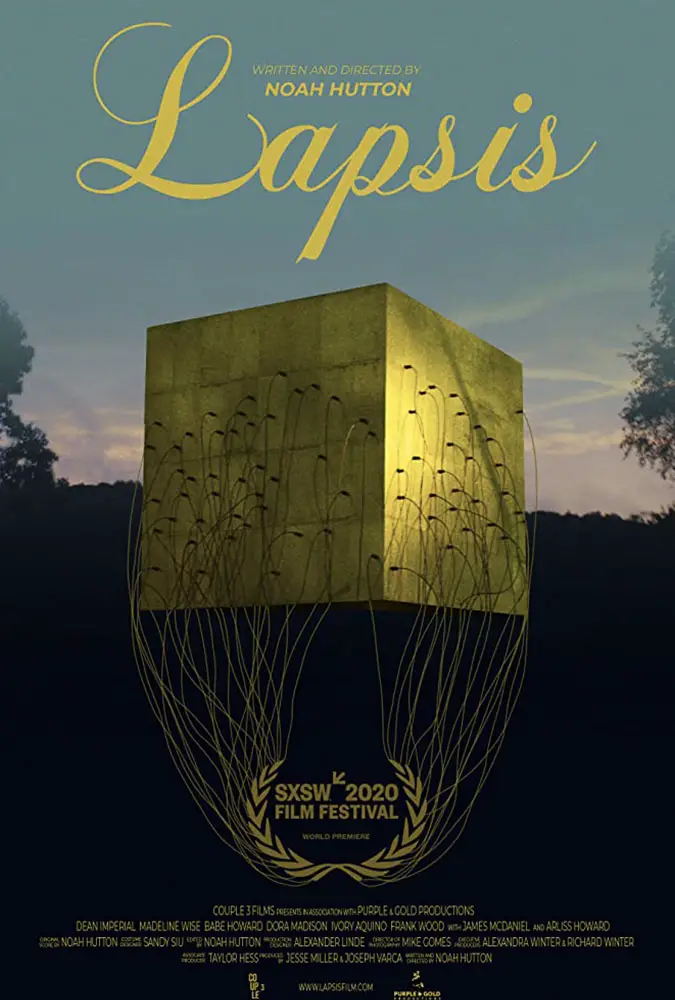
"…viewers who fear and distrust technology...will appreciate the satire."
